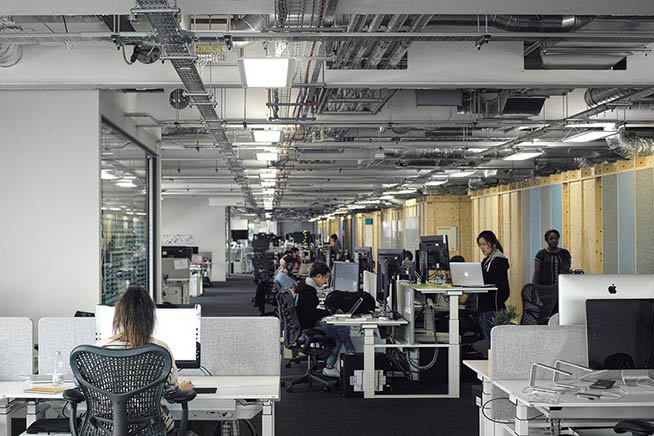Capable of learning complex maps and answering questions of different kinds, it simulates, in part, human reasoning. First step towards an artificial brain?
Coming to London and taking the subway is a special experience for a tourist. Not because of the medium, but because of the complexity of the lines and the frenzy of the passengers. If you’re lost, you should know that DeepMind, Google’s artificial intelligence supercomputer, is able to make sure you don’t miss a change in the City.
British researchers at DeepMind, a company owned by Google, have developed a system that can learn complex maps and answer questions about them. Of course, you might say, you just need to know how to use Google Maps, but the technology in question is very different. The experiment carried out in London involves a mix of artificial intelligence, machine learning and artificial neurons with the aim of reproducing the operation of the process of choice usually adopted by humans.
How DeepMind works
The choices of DeepMind, therefore, are not based on external indications or instructions written in the lines of the source code of a program. The Google supercomputer is able to prefer an option among multiple possibilities based also on the experience gained and on the information that arrives from the external environment. All this is made possible by the Differential Neural Computer (DNC), a computer system that replicates the functioning of human memory.
Uses of DNC
DeepMind researchers said they have tested this type of technology on other fields as well, beyond storing the map of the London Underground. DeepMind basa il proprio funzionamento su una sorta di quiz: in fase di “startup”, il supercomputer risponde a una lunga serie di domande, così da ampliare il proprio campo di conoscenze e utilizzarle successivamente per dare risposte corrette in situazioni reali. Con questo processo di allenamento (per tentativi ed errori, potremmo dire) le prestazioni dell’intelligenza artificiale migliorano notevolmente. Nel dare risposte su alberi genealogici o avvenimenti storici si ha una percentuale di risposta corretta del 98,8% di correttezza con la memoria esterna.
 Fonte foto: Deepmind
Fonte foto: Deepmind
Uffici DeepMind a Londra
Una macchina con una memoria particolare
Non siamo ancora di fronte alla copia del ragionamento umano. E a dirlo sono gli stessi ricercatori del DeepMind, Alexander Graves e Greg Wayne: “Non vogliamo dire che ora abbiamo una macchina in grado di ragionare. We can say that we have an improvement and a change in memory. A memory that is still a necessary part within reasoning.”